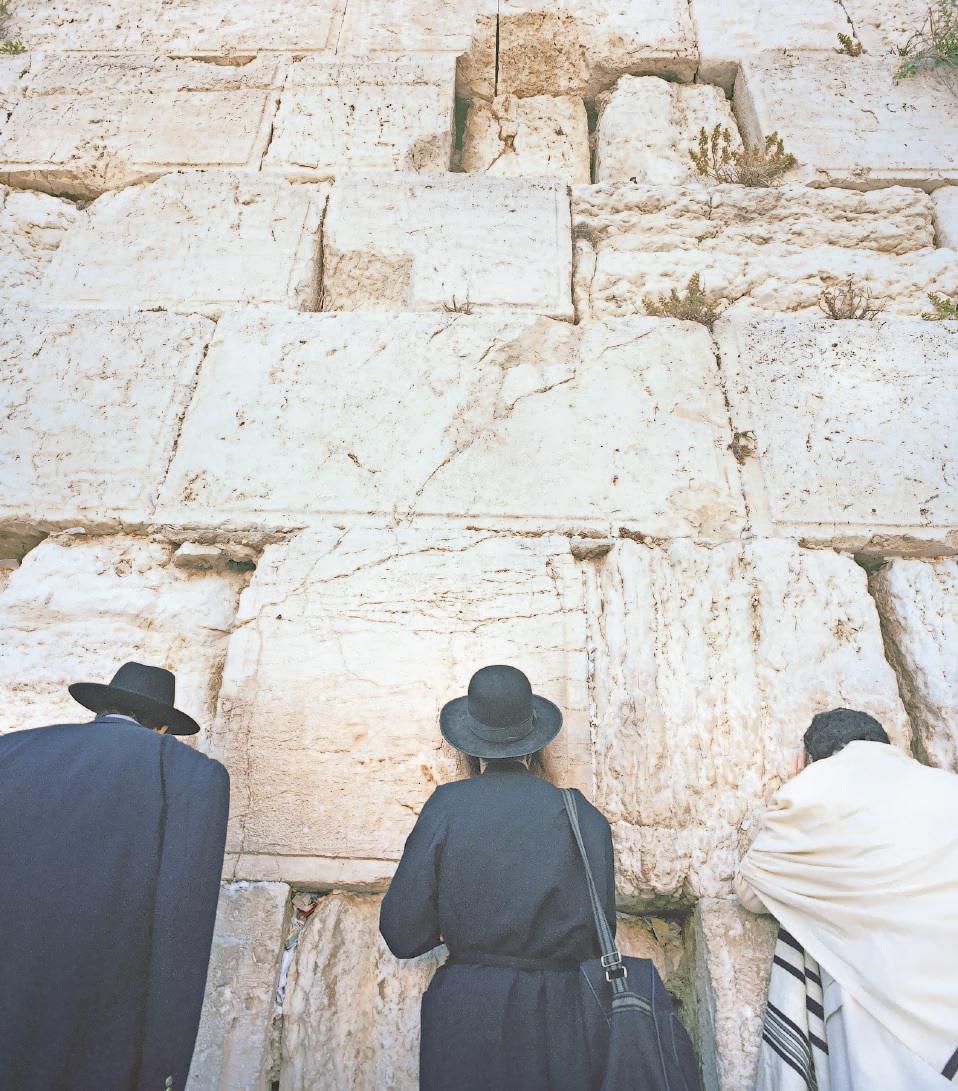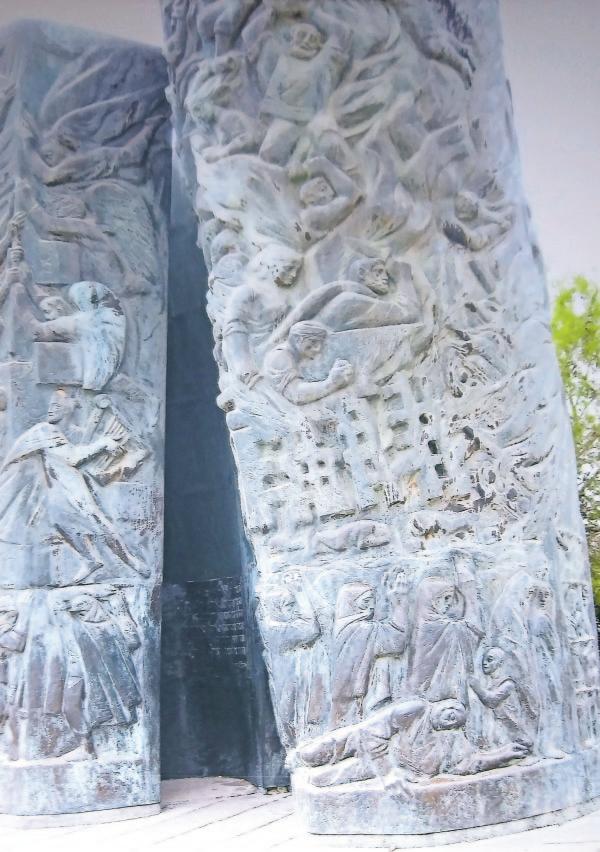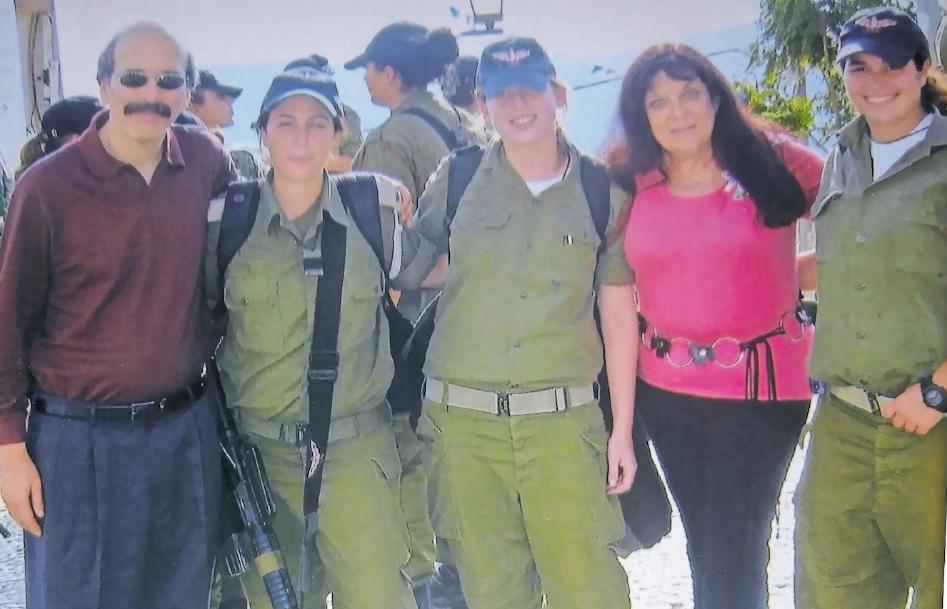
4 minute read
Israel at 75 — What Israel means to me
By Jan Henock-Rabinowitz
Jews lived in Israel for more than 2,000 years until the Romans exiled most of them, and they sought refuge in other lands. Despite this, Jews in the Diaspora continued to hope and pray that the state of Israel would be reconstituted someday.
On May 14, 1948, that dream was realized when Israel declared independence based on a United Nations vote. David Ben Gurion, the first prime minister, told his people that although the new state did not have adequate weapons, bullets or oil to face their foes, the people of Israel had hope — or “Hatikvah” — which became the national anthem.
Fast forward to May 2023 which will mark Israel’s 75th birthday, and the existence of this tiny state — equivalent in size to New Jersey — not only survived, but thrived. It is one of the most amazing achievements given the struggle against overwhelming odds because of antisemitism and the forces of nature.
Israel’s citizen army has to respond to repeat attacks by neighboring countries. Despite this, Israel has made the desert bloom! It is a leader in desalinization technology and other agricultural techniques, which the Israelis willingly share with developing nations.
They provide a parliamentary democracy where both Jews and non-Jews have rights and equal protection under the law, including religious freedom. Israeli-Arabs sit in the Knesset, the Israeli parliament, and also on the supreme court.
Israel has integrated more than 3 million refugees from post-Nazi Europe, Arab lands, Ethiopia, and the Soviet Union — and most recently Ukraine. Israeli doctors and nurses are on the front lines of every disaster around the world, and most recently in Turkey helping earthquake victims.
For its small number of people — 9 million — Israeli ranks 14th in the world in terms of Nobel Prize winners. Along with these achievements, Israel is responsible for more than 90 percent of the world’s high-tech start-ups, which brings the most innovative know-how to the world!
So why is Israel so special to me? It goes back to the fact that I believe the Holocaust would not have happened if the state of Israel existed. The Nazis who wanted Europe “Judenfree” specifically targeted Jews across Europe, Asia, and the Middle East for eradication.
More than 6 million innocent men, women and children perished in ditches, rivers, work camps and crematoriums throughout Europe through no fault of their own, but only because they were Jews and considered subhuman. As an American soldier, my father was witness to what Gen. Dwight D. Eisenhower said needed to be documented because no one would believe the atrocities committed against them. My mother was among the Shoah survivors whom my father rescued.
My husband and I made repeat trips to Israel. and recommend it as a must-see and do “bucket list” experience, regardless of your religion. My favorite site was one that is not usually well known, but documents the Holocaust through the 1967 War called “Scrolls of Fire” located in the Judean Hills around Jerusalem. There are so many sites, both ancient and modern, that no one would ever be bored in Israel.

Jan Henock-Rabinowitz is a Chabad of Hewlett member.
Israel is deeply rooted in Jewish identity

By Lilly Rotman
Israel has been regarded as a holy land by many, particularly Jews, and it continues to inspire and offer hope to countless people around the world. As a Zionist, Israel holds a deeply personal and special place in my heart as the fulfillment of the Jewish people’s long-held dream of having a homeland and somewhere to belong. The establishment of Israel was a hard-won victory that came after years of struggle and sacrifice, and the fact that the Jewish people now have their own state is a source of immense pride and gratitude for me.
As a student at Hebrew Academy of Five Towns and Rockaway High School, I have the opportunity to explore and deepen my understanding of Zionism and its significance to the Jewish people. Each year, my understanding of it allows me to empathize with and connect more deeply with the roots of Israel. Not only do we learn about the roots of Zionism in Judaic studies classes, but in history classes as well, which gives me the context of where the birth of Zionism falls in history. This also provides me with a deeper understanding of my Jewish identity.
Recently, in my AP European history class, I learned about the Dreyfus Affair, where a French Jew — Capt. Alfred Dreyfus, — was accused of being a German spy. The controversy divided France, with many assuming he was a spy simply because he was a Jew, demonstrating the event was rooted in antisemitism. This spurred many further antisemitic remarks, blaming Jews for social problems. Theodor Herzl, a journalist at the time, wrote about this controversy. It prompted him to realize that many religions have their own nation-state, but the Jews did not.
As a result, he encouraged the creation of a Jewish state, where the Jews would be guaranteed the right to practice their own religion and form their own government. This spurred the rise of the Zionist movement. At that time, what’s known as Israel was then called Palestine, which was controlled by the British, who supported the Jews’ interest in a Jewish state. In 1948, the Israeli state was officially established. This was a necessary step in ensuring Jews had a place to belong and the right to practice their own religion and form their own government.
As the great-grandchild of Holocaust survivors, for me, Israel represents the culmination of everything the Jews worked to accomplish. It embodies survival, hope, freedom, and a deep connection to God. Even after years of persecution and exile, God ensured us a place that embodied all the values of Jewish culture. I plan to go to Israel this summer to experience first-hand what we, the Jewish people, have been given. I plan to see the Western Wall, also known as the Kotel, which once again displays a sense of survival for the Jews. It is the one remaining wall of the Second Beit Hamikdash, the holy temple, which was destroyed. Although the temple was destroyed, that wall that continues to stand displays Israel’s continued resilience and ability to stand united as a strong Zionist nation; and encourages us to protect our homeland.
Being a student in a yeshiva high school with a curriculum that integrates Judaism and Zionism into everyday life has provided me with profound insight and appreciation of the roots, as well as pride in my nation as a whole.










